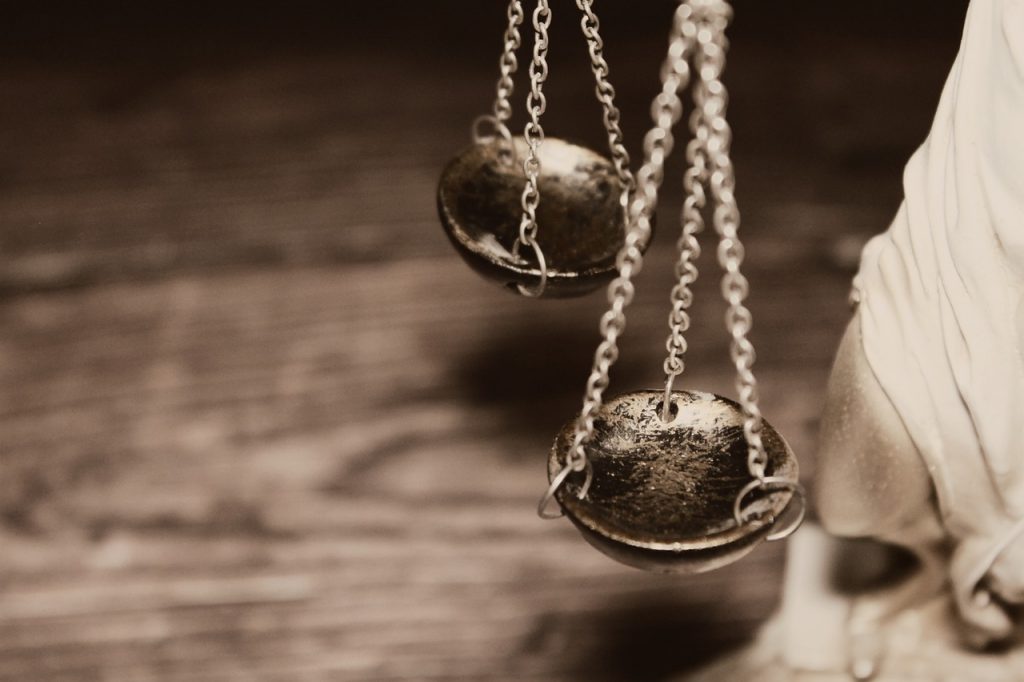Legal Aid in India most commonly means a legal advice; legal assistance and legal representation which is provided in criminal and non-criminal matters to the people who cannot afford to get legal assistance due to several reasons. Legal aid and human rights are conceptual cousins. It is a foundation for the enjoyment of legal rights like right to a fair trial and right to an effective remedy which ensures the public trust in the administration of justice in India.
In the catena of cases, the courts in India observed the value and importance of fair trial. For instance, In the matter of SOMAPPA HANAMANTAPPA CHOURADDI Vs STATE OF KARNATAKA, The Hon’ble Karnataka High Court observed —
“There is sufficient force in these contentions of Mr. H. F. M. Reddy that the accused had been denied the opportunity of making proper defence in the case for want of expert services of a Senior Counsel engaged by him.
One of the components of fair procedure in the administration of criminal justice is that the accused should have the opportunity of making his defence by a legal practitioner of his choice. That is his constitutional rights, under Article 22 of the Constitution, and in order to give effect to this constitutional right, it has also now been embodied in the Directive Principles of State Policy as provided under Article 39A of the Constitution, that the State shall secure equal justice and free legal aid by a suitable legislation or scheme or any other way to ensure that the opportunities for securing justice are not denied to any citizen by reason of economic or other disabilities.
That right has also been statutorily accepted and incorporated in Section 303 of Cr.P.C. which provides that any person accused of an offence before a Criminal Court or against whom the proceedings are initiated under this Code may have his right to defend by a pleader of his choice. That right, therefore, should not be interfered with.”
Courts took the judicial notice of this issue in plethora of cases. Thereafter, legislature drafted the Legal Service Authority Act, 1987. Even, a system of Lok Adalats was set up in the act and it was commended by the Supreme Court of India. This directive was further extended by the Supreme Court by bringing it into the sphere of fundamental rights under Article 21 of the Indian Constitution. The right to legal aid in India is now considered as a part of a just and fair procedure.
Who Can Get Legal Aid In India Funded By The State?
As per Section 12 of Legal Services Authority Act, 1987, the Criteria for giving legal services are — Every person who has to file or defend a case shall be entitled to legal services under this Act if that person is—
(a) a member of a Scheduled Caste or Scheduled Tribe;
(b) a victim of trafficking in human beings or begar as referred to in article 23 of the Constitution;
(c) a woman or a child;
(d) a person with disability as defined in Persons With Disabilities Act, 1995 (1 of 1996);
(e) a person under circumstances of underserved want such as being a victim of a mass disaster, ethnic, violence, caste atrocity, flood, drought, earthquake or industrial disaster; or
(f) an industrial workman; or
(g) in custody, including custody in a protective home within the meaning of Immoral Traffic (Prevention) Act, 1956, or in a juvenile home within the meaning of Juvenile Justice Act, 1986, or in a psychiatric hospital or psychiatric nursing home within the meaning of Mental Health Act, 1987; or
(h) persons with an annual income of less than Rs.1,00,000/- or as notified by the Central/State Govts.
How To Get Free Legal Services In India?
As per Section 13 of Legal Services Authority Act, 1987, One can claim entitlement of legal services based on—
(1) Persons who satisfy all or any of the criteria specified in section 12 of Legal Services Authority Act, 1987 shall be entitled to receive legal services provided that the concerned Authority is satisfied that such person has a prima facie case to prosecute or to defend.
(2) An affidavit made by a person as to his income may be regarded as sufficient for making him eligible to the entitlement of legal services under this Act unless the concerned Authority has reason to disbelieve such affidavit.

